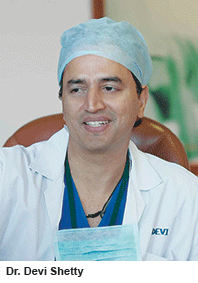 It continues to be now-on, now-off for Karnataka’s undergrad government medical (MBBS) seat aspirants this year despite the Union government promulgating an ordinance on May 25 which was expected to smoothen out medical and dental college admissions in the state.
It continues to be now-on, now-off for Karnataka’s undergrad government medical (MBBS) seat aspirants this year despite the Union government promulgating an ordinance on May 25 which was expected to smoothen out medical and dental college admissions in the state.
The ordinance allows states to opt out of the Supreme Court-mandated National Eligibility-cum-Entrance Test (NEET) for 2016 admissions to government medical colleges and to admit students in accordance with existing norms. In effect, the ordinance confirmed that 165,000 candidates’ scores in the state-administered Common Entrance Test (CET), held on May 4-5, are valid for admission into the state’s small number (15) of government medical colleges offering 1,950 seats.
But fresh uncertainty cropped up on May 27 with private medical colleges announcing they will withdraw the 1,500 medical and 1,500 dental college seats that they have hitherto been allocating to the state government each year at government determined tuition fees under an annually negotiated agreement with the Consortium of Medical & Engineering Colleges of Karnataka (COMED-K). Private professional colleges will now admit students only on the basis of NEET scores, and have abolished their own COMED-K entrance exams. The state government has accused the colleges of reneging on a subsisting agreement and is likely to move the courts on this issue.
For aspirants to private medical colleges, however, there is another problem. Their admission is now dependent on performance in NEET, which is conducted by the Delhi-based Central Board for Secondary Education (CBSE), based on this pan-India school board’s curriculum and test format, quite unlike that of the state board curriculum followed by CET and COMED-K. According to student spokespersons in Karnataka, with the Supreme Court having made NEET the sole national test for entry into all medical colleges as recently as on April 28, there’s little lead time for candidates, who generally prepare for entrance exams over a year or two concomitantly with their Plus Two exams. Students of the pan-India CBSE and CISCE schools in the state also prepare for the state curriculum-based CET through bridge courses of coaching centres and self-study material.
Dr. S. Naveen, principal of RajaRajeswari Medical College and Hospital, Bangalore, has no doubt the NEET imposition will adversely affect students in the state. “A common syllabus must be designed before implementing NEET. Further, the exam must be held in multiple languages. Even if NEET is implemented next year, how will students of state board schools, particularly rural students, prepare for it? Teachers have to be trained and this cannot happen in a year. If NEET is implemented without curriculum changes in state board-affiliated schools, it will hurt state board students while benefiting CBSE students and the urban elite,” he warns.
Writing in the Times of India (May 19), celebrated cardiac surgeon and founder chairman of Narayana Health, and former member of the board of governors of the Medical Council of India, which mooted a single national exam for medical college aspirants, Dr. Devi Shetty admits to the need for creating a level playing field. “Each state government will create a separate merit list for their students based on NEET ranking. NEET is just a tool to grade students and make the selection fair, without taking away a state’s privilege to protect the interest of its students,” he writes.
Clearly, though the arguments advanced by the Supreme Court bench for NEET are persuasive, more time should have been given to state governments and aspirant medicos to prepare for the transition.
Jeswant J.M. (Bangalore)























